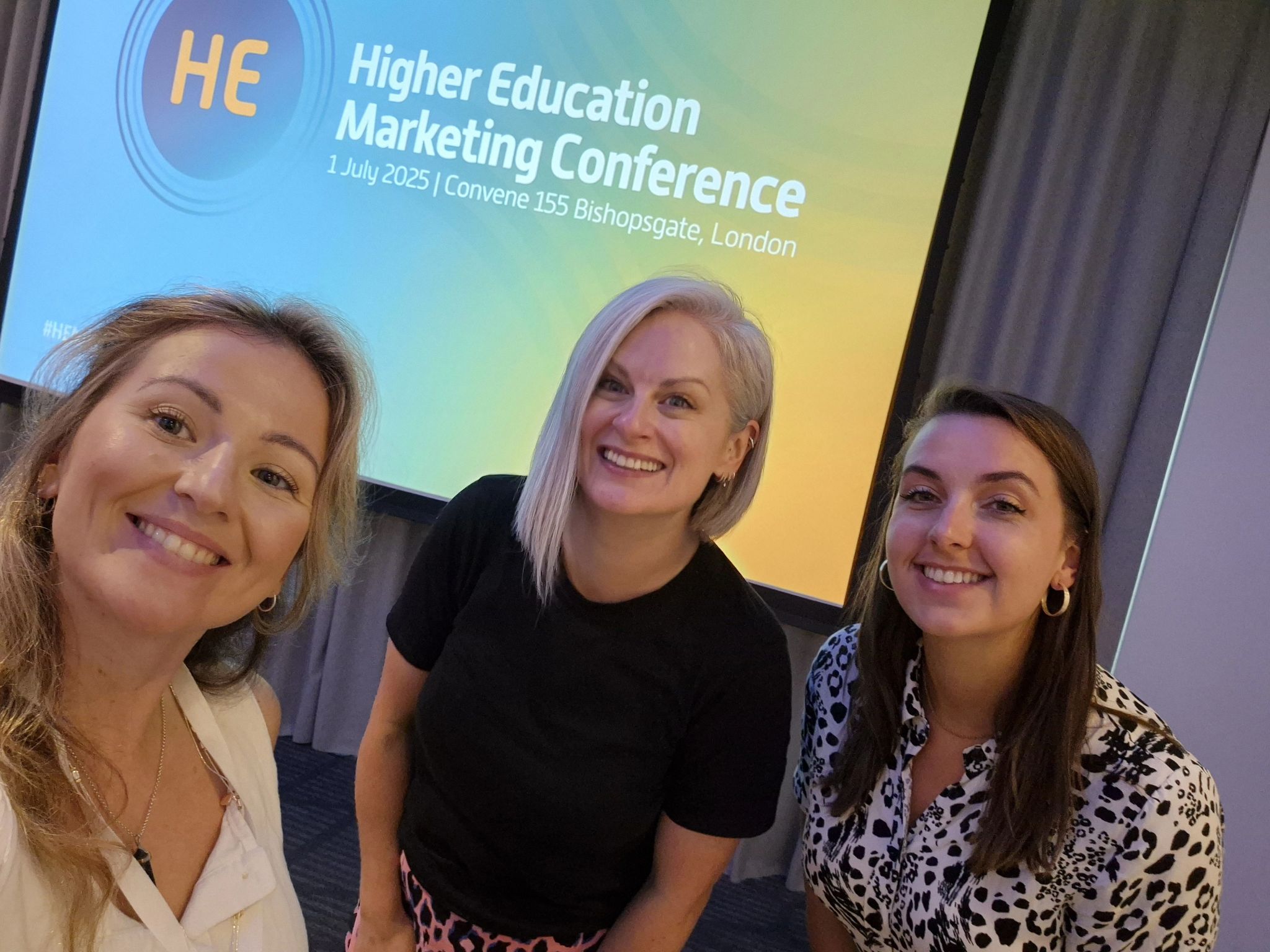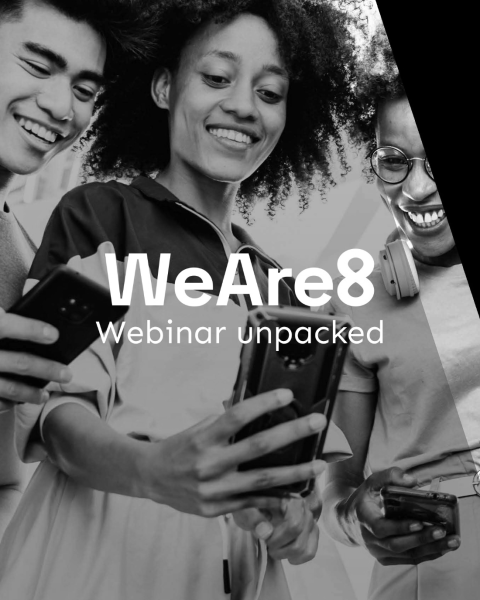Higher education marketing has hit an inflection point: shrinking domestic cohorts, intensifying global competition and an audience that swipes past anything less than authentic.
Last month’s Higher Education Marketing Conference (HEMC) served up a reality check and a well-timed reminder into some of the basics. Verity, Emma and Amelie from team Adgen all took notes so you didn’t have to.

Below is a director-level digest of the day’s sharpest ideas:
1. Combine rational AND emotional messaging for ultimate impact
Speaker Paul Woods (LSBU) asked a blunt question in his opening plenary:
“If students are investing tens of thousands, are universities demonstrating the return?”
He argued career outcomes matter, but so do the transferable skills, networks and life-changing experiences universities enable.
Despite this, most student recruitment messaging still leans on rational proofs (System 2 thinking) like rankings, salary data and research statistics – while under-indexing on emotional signals (System 1 thinking) that make prospective students feel the transformation ahead.
He acknowledged that we have some time before Generation Alpha visit campus but reminded us that, like Gen Z, they will arrive as entrepreneurial self-educators who prize hard and soft skills in equal measure. They’ve grown up with hyper-personalised algorithms and now ask AI, not Google, to solve their problems.
If our messaging balances head and heart, showing both the measurable ROI and the felt journey of skills enrichment, we’ll meet them where they are and win the decision before they even book an open-day ticket.
Tip: Take stock of your key messages. Pair every emotive story with a verifiable stat and visa-versa (e.g., “I landed my placement at Rolls-Royce” + “90 % of our engineering students secure industry placements”).
By coupling authentic emotional storytelling with rational facts, we can meet today’s Gen Z expectations while future-proofing for Gen Alpha.
2. Don’t play HE Lingo Bingo
Tracy Playle (Pickle Jar Communications) flashed a bingo card loaded with tired HE clichés…
“world-class research”
“vibrant student community”
…and the room erupted with knowing groans. The joke landed because, let’s face it, university marketing has become painfully same-samey.
Tracy’s first prescription was ruthless decluttering: distinctiveness is as much about what you remove as what you add. It got us at Adgen thinking differentiation doesn’t stop at copywriting. True differenation is also a behaviour. Too many institutions declare their appetite for “innovation” , then send fresh ideas to committee purgatory because they feel risky or lack an immediate ROI line.
Our challenge to HE Marketing Directors is: if we keep echoing the same buzzwords and acting in the same cautious ways, why should students believe a single claim we make?
Tip: Use these prompts to identify your actual areas of differentiation:
“We are the only university that…”
“We are the first university to…”
Forget about the rest, be unwavering in these actual unique selling points.
3. Optimise for AI-First Search
More or less every talk at this event nodded at AI, the growing, ever-present companion to our lives. Whether we like it or not, younger generations adopt technology quicker than the rest. Which means they are already using AI to answer questions like “Which uni is best for [insert interest here]”.
Traditional SEO remains vital, but model-ready content (concise answers, structured data, FAQs) is your entry ticket to generative answers. And believe it or not, so is a presence on community forums like Reddit.
Tip: Identify your top 20 long-tail questions (e.g., “Is biomedical engineering accredited at X University?”). Create schema-marked, 150-word answer cards with a clear citation path – then monitor how AI tools surface them. Bonus tip: Put them on community channels like Reddit too!
4. See Your Event Through Gen Z Eyes
A live UCAS school-leaver panel reminded us that freebies still delight – yet brand recall is fragile. One student loved her tote but couldn’t name the university behind it. Visual storytelling and honest dialogue trump swag alone.
Tip : Students keep tote bags, but remember stories. Print a bold one-liner that links your uni to a distinctive proof-point (“Home of the UK’s first student-run space lab”).
5. Think Global, Act Luxury
In ‘The Big Chat’, it was pointed out that a UK degree costs many overseas families triple their local options, a luxury purchase, yet most universities still pitch it like a mid-range commodity.
If Rolls-Royce were tasked with selling your university, they’d pair prestige with a bespoke hand-over; treat your offer the same way.
Lead with Britain’s reputation for education: excellent research calibre, world-class labs, career lift. Then prove “home-from-home” comfort in the same breath: halal menus for Gulf applicants, WeChat clips of Chinese grads in Tier-2 jobs, WhatsApp voice notes from Nigerian alumni on flexible payment plans. One-size messaging won’t work; craft micro-journeys per market and speak in local currency if you can.
Tip: Luxury buyers expect concierge service, so give every applicant a named advisor, and visa hand-holding. Finish with a clear five-year earnings delta in rupees, naira or yuan. Prestige wins attention; personalised, culturally tuned proof closes the enrolment – and very few universities are marketing at that level.
Adopt these plays and next year’s intake won’t just apply – they’ll arrive primed, passionate and prepared.


